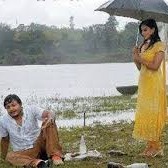

Many Kannada directors are experimenting with songs, with specific non-traditional themes. It is not a smoker's break or a samosa break," he quips. It also has its own role in the film - many directors have used it as a narrative tool. It is not an exhibition of my scholarship. And it has to be very simple - everybody should hum it. And it is not my worldview that I am writing about - it is the hero or heroine's predicament in the film that I have to give words to. Many ask me what creativity there was in writing film songs. I have always felt that it requires a different set of creative abilities. Lyricists have to work within a fixed creative boundary, often writing a song for a tune that is already set. It is a simultaneous activity and I enjoy it." I continue to write my own stories - a book of essays is ready for release. Our sense of aspiration, fulfilment - they have all come from cinema. You cannot imagine Indian films without songs. Film music in our country is a part of our culture. Was it unreal for the litterateur in him to see his phenomenal success as a film lyricist? "I don't feel that mainstream literature and cinema literature are different, because we have grown up with cinema, and it is a part of our lives.

I kept going wherever life took me," he says.
#Mungaru male kannada song lyrics series#
He shifted to Bengaluru when the factory closed down, and worked as an editor of a Kannada literary magazine, was an adviser to ETV Kannada, and anchored an interview series for TV. "I always say that it was not 'Rab ne bana jodi', but 'VapoRub ne bana jodi!" he said. Did he use his romantic poetry to woo her? "No, she did not know Kannada! But both of us loved Talat Mahmood songs, and that brought us closer," he said. His wife Smita had also worked there, and romance had blossomed. Kaikini had earlier worked as a biochemist in a Mumbai pharmaceutical company that manufactured Vicks VapoRub. It was also the last song that he sang," he says. Dr Rajkumar was fascinated by the boatman theme in Hindi songs. " 'O Aaja Re' had lines of Hindi alternating with Kannada lyrics throughout the song. He wrote two: 'Bandhuve' and 'O Aaja Re'.

"I accepted Nagabharana's invitation purely because it was an opportunity to work in close proximity of Dr Rajkumar - I didn't want to miss it!" he exclaims.ĭr Rajkumar and Varadappa, who were part of Vajreshwari Combines that produced the film, insisted that he wrote a couple of songs for the film that starred Shivarajkumar. He wrote the screenplay for the film along with the film's director, Nagabharana. While his songs in MM made people sit up and listen, his actual debut as a songwriter was in Chigurida Kanasu (2003), based on Shivaram Karanth's novel of the same name. His lyrics and the phenomenal success of his songs have attracted more readers to his Kannada stories and poems as well. Today, he has a new generation of admirers. He occupies a separate place in Kannada literature as a poet and a writer, having won four Karnataka Sahitya Academy Awards, the first one as a 19-year-old for his collection of poems. More than a decade has passed since then, and he has written over 300 songs. "It was the new generation's casualness and no pretensions that created the change.

Mungaru Male ( MM) also heralded the arrival of Jayant Kaikini as one of Kannada's most popular lyricists. The film's musical success swept in an era of lyrics that had the public humming with pleasure. An isuthide yaako indhu.' blew in like a pre-monsoon breeze over a decade ago in Mungaru Male, bringing with it a freshness to Kannada film songs.


 0 kommentar(er)
0 kommentar(er)
